Mansur Ali Khan Pataudi and Sourav Ganguly, says Haresh Pandya, were not merely captains; they were leaders of men.
With the exception of the recent tours of England and Australia, where India suffered eight defeats in a row, hardly does a Test series pass without addition of a new feather in Mahendra Singh Dhoni's cap as a captain.
With two successive wins against New Zealand, he is now inching closer to Sourav Ganguly as India's most successful Test captain.
India has tasted a record 21 triumphs (11 abroad) under Ganguly in 49 Tests. At the end of the series against the Kiwis, Dhoni's score is 19 victories (5 overseas) in 39 Tests. Considering India's tight schedule with more Test series to follow, it may not be very long before Dhoni finally leaves Ganguly behind.
Dhoni is at the pinnacle of his prowess and seems to be enjoying every moment of his cricket. He is equally relishing leading India. Team India has benefited immensely from Dhoni's batting, wicket-keeping and captaincy.
He is a prodigiously talented cricketer with brilliant mental gifts. There just does not appear to be a better man to captain India.
Virat Kohli is there, of course, but as long as Dhoni is around, he has to take the backseat.
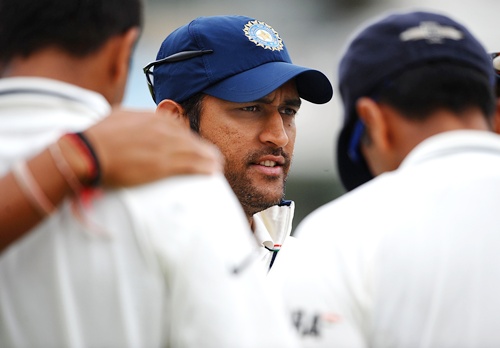
Dhoni is likely to lead in many more Tests and end up with a record that will be a Himalayan task for future Indian captains, including Kohli, to surpass.
He is a cool customer, both as a cricketer and captain, with great personal charisma. The Indian team has gelled very well under him. He supports his players, young and experienced alike, to the hilt, particularly when they are going through a lean period. They, in turn, strive hard to give their very best.
Unlike many captains, who demand respect, Dhoni has earned admiration and love of his players. He is aware of the strong and weak points of his players and knows how to get the best out of them.
By the same token, he also studies the strengths and weaknesses of his opponents and formulates his stratagems accordingly.
Though a man of independent ideas, he never hesitates to seek advice from senior players, on and off the field, if it is going to help the team. He strongly believes in leading from the front and setting personal examples as a player for his teammates to emulate.
His success in Test, One-day and Twenty20 cricket speaks volumes for his leadership qualities.
However, for all his brilliance, success and achievements, it is a moot point whether Dhoni can be hailed as the greatest captain India has ever produced.
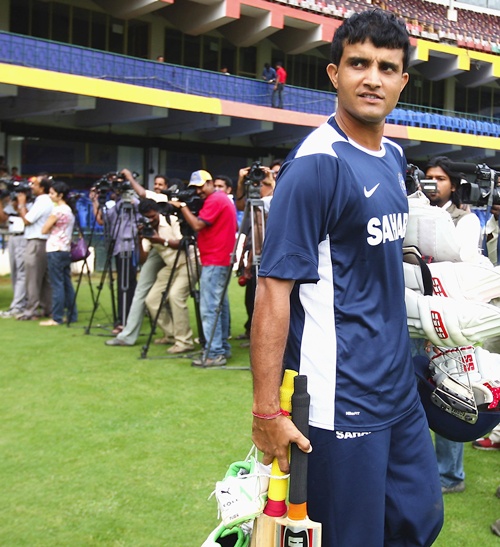
There are two "tigers" of Indian cricket, Mansur Ali Khan Pataudi and Ganguly, who make this lion's case a bit weaker.
Pataudi and Ganguly were not merely captains; they were leaders of men.
Depending on the attitude of the critic, statistics may hold greater importance when it comes to assessing a batsman or a bowler. But they do not always help to accurately judge a captain.
You have to take into consideration a variety of factors, not just statistics, to evaluate a cricket captain.
Among many other important things, you have got to take into account the strength and weakness of his own team, the form of his players, the quality of opponents, the nature of the pitch, weather and other conditions and the match situation to decide how good or great a captain actually is.
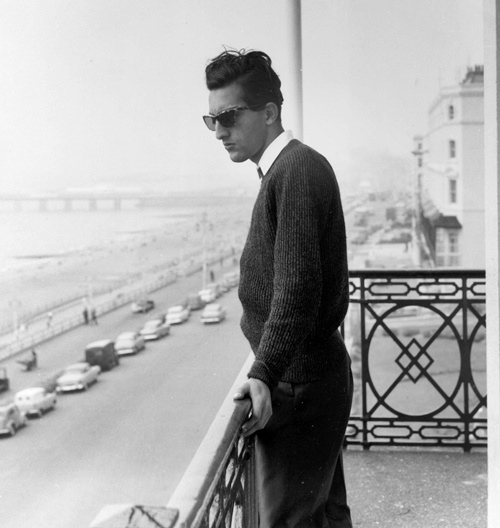
Oxford-educated Pataudi had cricket flowing in his veins as his father also captained India. He was just 21 and a veteran of only three Tests when he was made vice-captain of India on the 1962 tour of the West Indies.
And when Nari Contractor was struck on the skull by Charlie Griffith, he became the youngest ever Test captain in history. Pataudi led in the last three Tests and went on to captain in 37 more during his eventful career.
In spite of having very limited resources at his command, he built a fairly strong Indian team from a bunch of no-hopers.
He instilled a much-needed dose of self-belief and self-respect into his players, taught them the art of fielding and turned them into fighting unit.
Pataudi, who relished being challenged and loved to dare his opponents, was the first Indian captain who taught his players how to win.
Though victories were still few and far between, his team always appeared capable enough of defeating any team in the world.
But, just like his batting, you cannot judge Pataudi's captaincy on the basis of statistics alone, even though he led India in 41 Tests.
India may have won only nine and lost 19 Tests under Pataudi, but considering the might of most of our opponents and the conspicuous absence of quality, world-class batsmen in our team, this was quite an achievement. He was one hell of a Test captain, who deserved greater success.
How Pataudi led India almost to a series win against the rampaging West Indies in 1974-75 after losing the first two Tests is a part of history.
So much has been said, more written, about how India won three series, including one in the West Indies and one in England in 1971, in a row under Wadekar.
While this was a creditable performance and achievement by any yardstick, what is often forgotten is that Wadekar had inherited a pretty formidable Indian team from Pataudi.
Wadekar had the advantage of the world's finest spinners playing under him, though in batting he had only two world-class batsmen in young Gundappa Viswanath and Gavaskar.
Gavaskar may have begun his Test captaincy innings with a win in New Zealand in 1976 and subsequently captained in further 46 Tests, but never once did he give the impression of being an adventurous, aggressive and imaginative captain.
Safety first seemed to be his motto -- almost always. No wonder, then, Gavaskar is more remembered for his batting exploits than his captaincy.
Bishen Singh Bedi was quite the antithesis to Gavaskar as a captain.
Like Pataudi, he, too, was a players' captain. It was under Bedi that India beat the West Indies at Port of Spain in Trinidad in 1976 by successfully chasing 400-plus runs in the fourth innings.
A shrewd captain like Bedi should have led India in more than merely 22 Tests (won 6, lost 11).
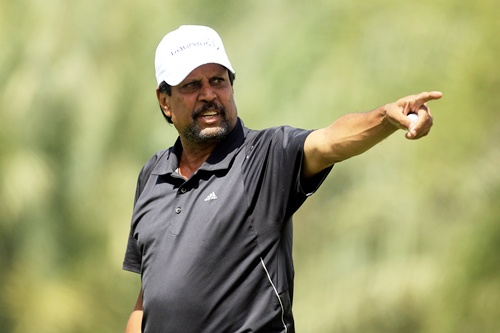
Kapil Dev may have won the 1983 World Cup for India, but he often failed to deliver as a Test captain. Though not defensive like Gavaskar, he could never become a pragmatic captain.
More than on his mind, he often depended on his instincts to take certain key onfield decisions.
Overall, he had a mixed bag as a captain, wining four, losing seven out of 34 Tests. Also, he had problem with a couple of his star players which sometimes had a negative bearing on the team.
Mohammed Azharuddin could never establish himself as a truly great captain despite leading India in 47 Tests (won 14, lost 14). Often armed with three spinners, his team formed a habit of winning against all comers on the dusty bowls of India. But the same team would cut a sorry figure abroad.
The Hyderabadi was the most uncommunicative of all Indian captains.
His line of argument was that when you play for your country you should know your responsibilities and what is expected of you.
Whatever laurels Azharuddin had achieved on the strength of his artistic batting and predictable captaincy lost their gloss and significance the day his name surfaced as one of the prominent players involved in match-fixing.
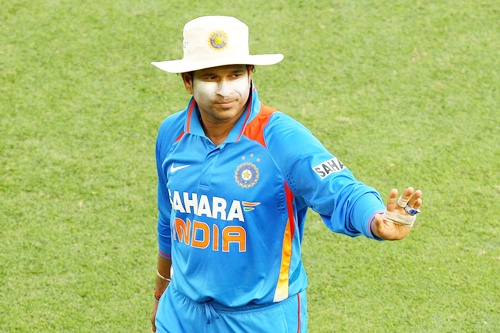
Sachin Tendulkar never felt comfortable as a captain despite leading the country in 25 Tests. He had inherited a decent team from Azharuddin but it touched new depths of nadir under his captaincy.
And when he realised that captaincy was affecting his batting, he wisely decided to relinquish the throne, leaving the team into further turmoil.
In the true fashion of 'Cometh the hour, cometh the man', Ganguly arrived on the Indian cricket captaincy scene to set the house in order. He knew how tough the job was. He was never short of new, even revolutionary, ideas. Nor lacking in courage to take bold decisions.
He was a prototype of what the 21st century Indian captain ought to be like.
Unlike Pataudi, Ganguly had to overcome more disadvantages. He had to rebuild the team virtually from the wreck and restore the pride. It was a Herculean task.
The first and most important thing that Ganguly did after taking over from Tendulkar was clean the Indian dressing room of the alleged match-fixers.
He kept the keys with himself and ensured that no dirty or polluted air entered the Indian dressing room and defiled its sanctity. It worked. And how.
India began to taste Test triumphs pretty frequently, including overseas, which till then was as rare as Manmohan Singh laughing heartily.
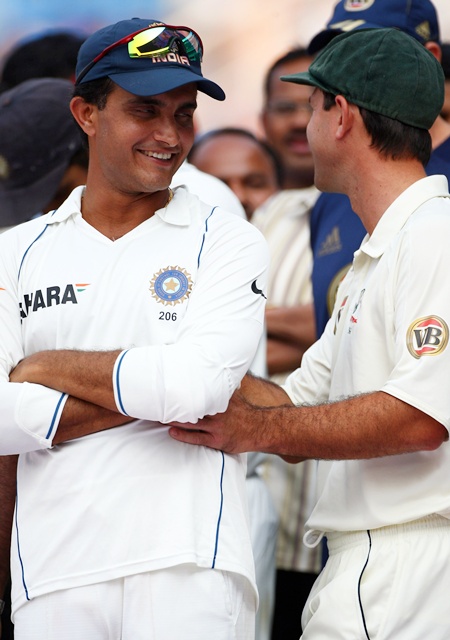
Intelligent, imaginative and at times daredevil to the extent of audacious, Ganguly took the Indian team to new heights of success and glory.
Apart from the heroics of VVS Laxman, Rahul Dravid and Harbhajan Singh, his astute leadership went a long way towards India defeating the World champion Australia in the three-Test series in India in 2001.
Tit for tat was Ganguly's philosophy, both as a player and as a captain. A confident, commanding Ganguly would meet his counterpart Steve Waugh, always a tough cookie, in the eye and make him wait for the toss.
He could even take off his shirt in the balcony of the hallowed Lord's, of all places, in a retaliatory action against the England team.
Many of India's finest, toughest and most unforgettable victories in Tests and ODIs -- against heavy odds, it must be stated -- were achieved during Ganguly's reign. Not only did India win that famous Test against the all-conquering Aussies after suffering the humiliation of follow-on at Kolkata in 2001; they also made it to the final of the 2003 World Cup in South Africa.
But for Greg Chappell, who played a pivotal role in ruining Ganguly's career, he would probably have led India in more Tests. Probably Dravid and Anil Kumble would never have got a chance to captain India.
But not only did they get opportunities to lead the country; they got a better, stronger team, too.
A team that was built and nurtured by Ganguly. From Ganguly to Dravid to Kumble, the legacy has passed on to Dhoni.
Yes, Dhoni is a great captain. So was Pataudi. But Ganguly must remain the greatest of all Indian captains.